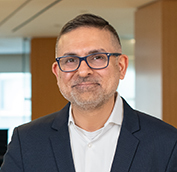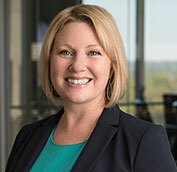Flag After the Play, Ruling on the Field Under Review: $4.8 Billion NFL Sunday Ticket Antitrust Litigation
In June 2024, a California jury awarded plaintiffs nearly $4.8 billion in an antitrust class action against the National Football League (NFL) and DirecTV. In the case, In re National Football League's "Sunday Ticket" Antitrust Litigation, plaintiffs – individual and corporate subscribers to the NFL's "Sunday Ticket" streaming package – alleged that all 32 NFL teams, along with DirecTV, violated federal antitrust law by pooling their broadcast rights and offering the "Sunday Ticket" only as a complete package. Plaintiffs argued that there should have been a single-team option available, in addition to the complete package. The jury agreed.
But a little over a month later, U.S. District Judge Philip S. Gutierrez overruled the jury's verdict, finding that plaintiffs' experts presented "flawed" and unsound methodologies.
"[B]because there was no other support for the class-wide injury and damages elements of plaintiffs' [antitrust] claims," Judge Gutierrez entered judgment as a matter of law for the defendants. Plaintiffs, as expected, filed an appeal to the Ninth Circuit. That appeal – which could determine the fate of the NFL Sunday Ticket – will likely be decided next year.
WHAT IS THE CASE ABOUT?
At base, the litigation addresses whether the NFL can offer only an "all team" Sunday Ticket product or whether it must also allow teams to offer a single-team product, which plaintiffs assert would be cheaper. In a 2010 opinion in American Needle, Inc. v. NFL, the U.S. Supreme Court held that, for purposes of analyzing whether the NFL teams could pool their apparel licensing rights consistent with antitrust law, each team had to be treated as a separate market participant. The consequence was that the NFL as an umbrella entity does not immunize the league's teams from antitrust law. As a result, plaintiffs can bring a claim alleging that the pooling of intellectual property rights by the teams violates federal law.
Based on a similar theory to American Needle, the Sunday Ticket plaintiffs sued the 32 NFL teams and DirecTV, which sells the Sunday Ticket. Each NFL team formed an agreement with the NFL to allow the NFL to exercise their rights collectively. The NFL then entered an agreement with CBS and Fox to broadcast the NFL games, allowing some local games in each geography to be broadcast free over-the-air. The NFL and DirecTV entered into an agreement allowing DirecTV to create "NFL Sunday Ticket," a package combining live broadcasts from CBS and Fox. Plaintiffs alleged that the NFL's interlocking broadcast agreements unreasonably restrain trade in violation of federal antitrust law and amount to monopolization.
In July 2024, the case was presented to a jury in a two-week trial. After the jury returned a multibillion dollar judgment for plaintiffs, the court entertained post-trial motions. On Aug. 1, 2024, the judge determined that the testimony of plaintiffs' two expert witnesses – who provided opinions that plaintiffs had been injured by the pooling arrangement and by how much – did not meet the requirements of the federal rules.
Federal Rule of Evidence Rule 702, which governs expert testimony, had been amended in 2023 to become more stringent. Judge Gutierrez held that the testimony of plaintiffs' economic experts did not meet the new requirements because it did not result from reliable and sound methodologies.
Each of the plaintiffs' experts had engaged in creating economic models to determine what would have happened in the "but for" world – i.e., a world where the NFL teams did not enter into the challenged contracts. One of the plaintiffs' experts based his economic model on college football, concluding that, absent the challenged agreements, out-of-market NFL games would become available for free. Judge Gutierrez held in his post-trial order that this expert's testimony was both contrary to the fact testimony during trial, and unreliable because it had unsupported assumptions about how the NFL teams and their broadcasting partners would have arrived at a spot where every out-of-market football game was available for free. Instead, according to the judge, the expert simply opined that the NFL teams and broadcasting partners would have "figured it out," which was not sufficient.
The judge also excluded the testimony of another plaintiff expert, who opined about an alternative distributor of out-of-market games that could have existed in the "but for" world. The judge determined that, logically, the expert's opinions were limited to a "but for" world where there was a direct-to-customer streaming option, but there was no factual testimony to demonstrate that any streaming service was available or seeking to distribute out-of-market NFL games during the relevant time. Consequently, the economist's testimony did not meet the requirements of the federal rules.
Along with eliminating the expert testimony, the court held that
"[t]he jury did not follow the Court's instructions [on damages] and instead relied on inputs not tied to the record to create its own 'overcharge.'" Rather than calculating the average overcharge, the jury "calculated the average 'discount' a residential consumer received," which the court determined was not only contrary to the court's instructions, but "nonsensical" as well.
WHY DOES THIS MATTER?
The case is before the Ninth Circuit, so any final analysis of the consequences of this case will need to await the outcome of the appeal. That said, the district court opinion presents issues that warrant more immediate consideration.
Parties in litigation – particularly in cases, such as antitrust cases, that almost always involve "but for" analysis – should ensure that expert testimony is based on a thorough explanation of the "but for" world and use sound "but for" assumptions that have factual support. Judge Gutierrez explained that "[w]hile FRE 702 certainly does not require a but-for world to perfectly reflect what the real world would have been," plaintiffs' expert needed to do more than just opine "market participants would have figured it out." Parties also need to ensure that their expert's testimony is well supported not just before trial, when challenges to expert testimony often take place, but all the way through trial. In other words, parties must present the appropriate factual record at trial to support their expert's assumptions.
Even when an expert opinion is well-grounded and has a sound methodology, parties should remember that juries are often motivated to make their own determinations. This is particularly true in complex cases, such as antitrust cases, where the jury is asked to decide complicated issues.
Sophie Hill, a 2024 summer associate with Stinson LLP, is currently a law student at the Mitchell Hamline School of Law.

